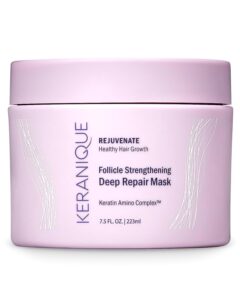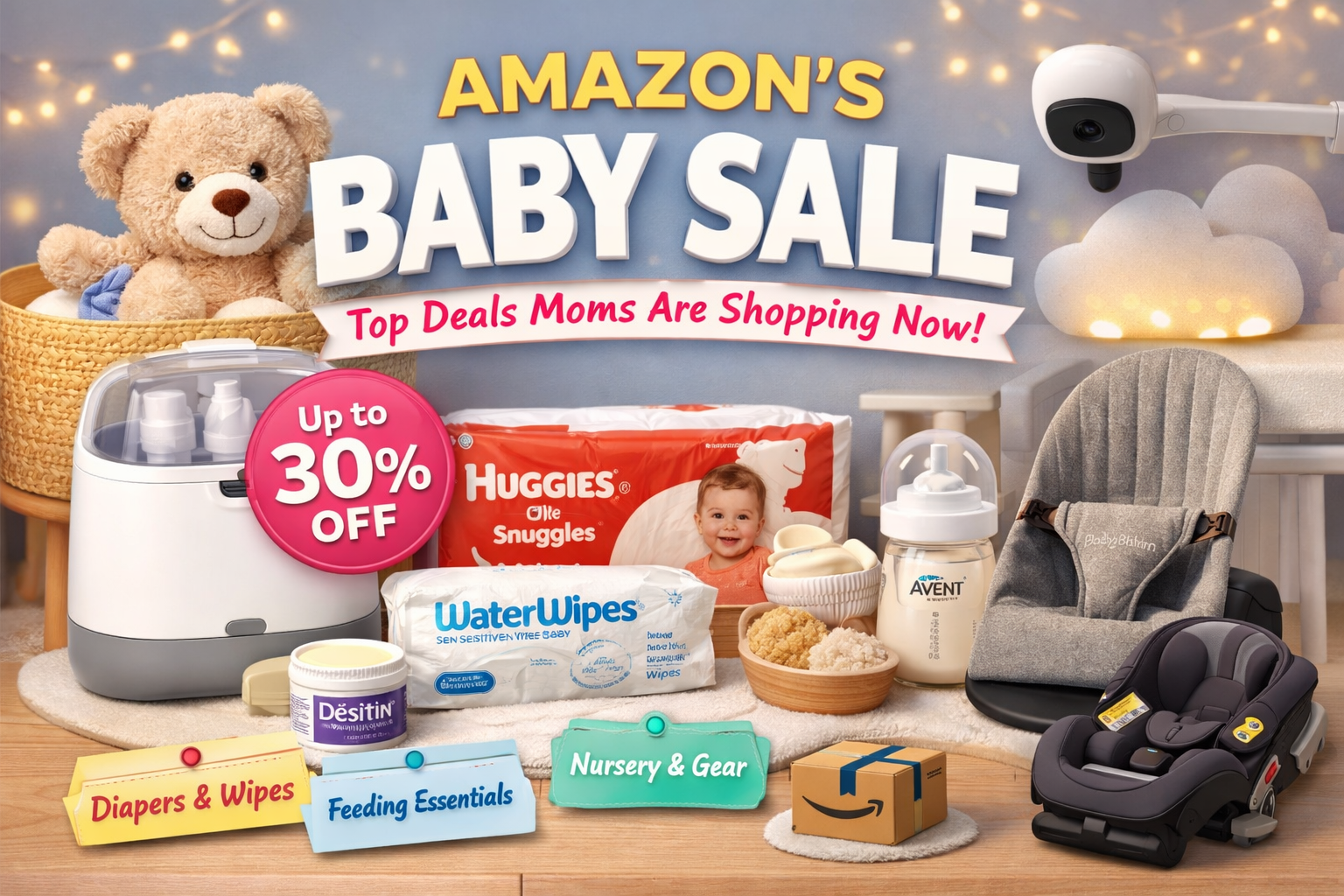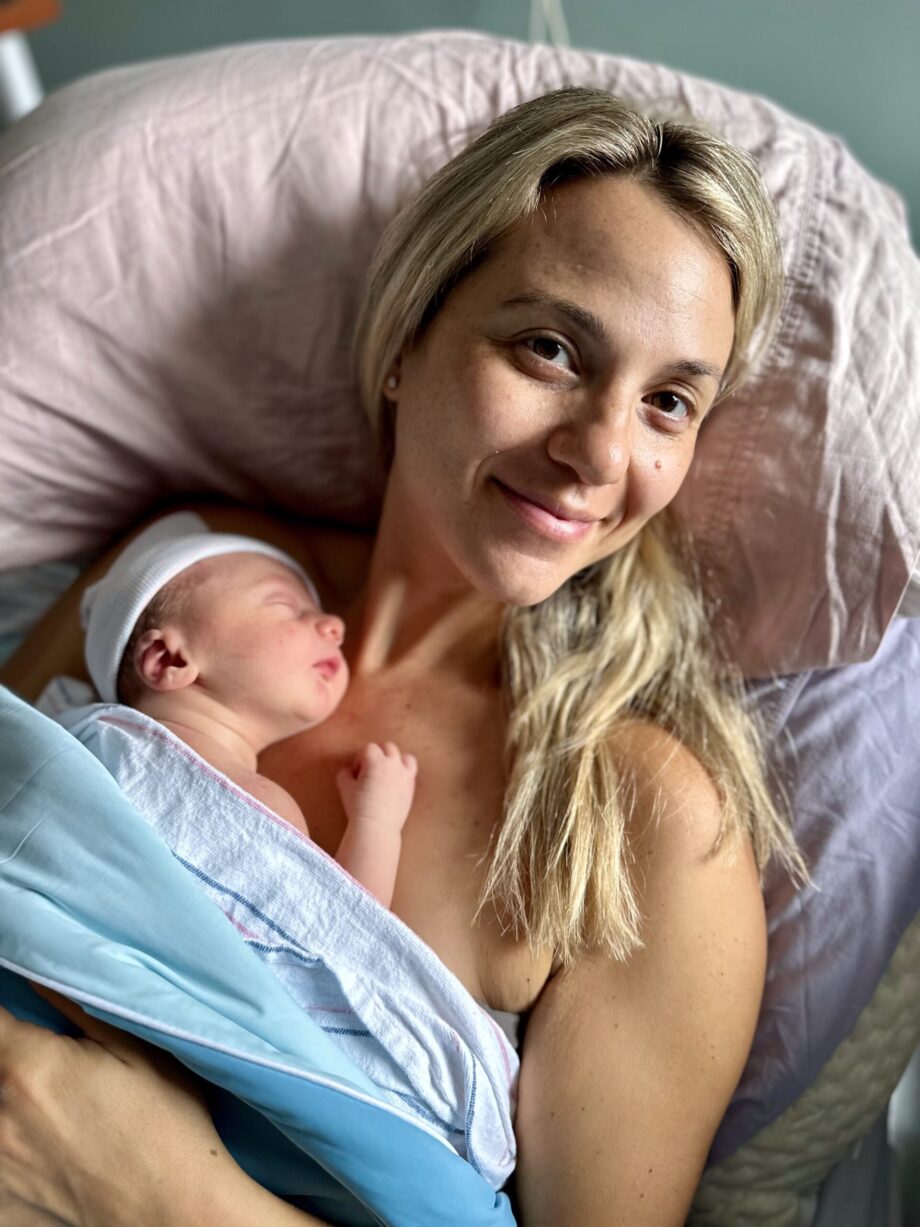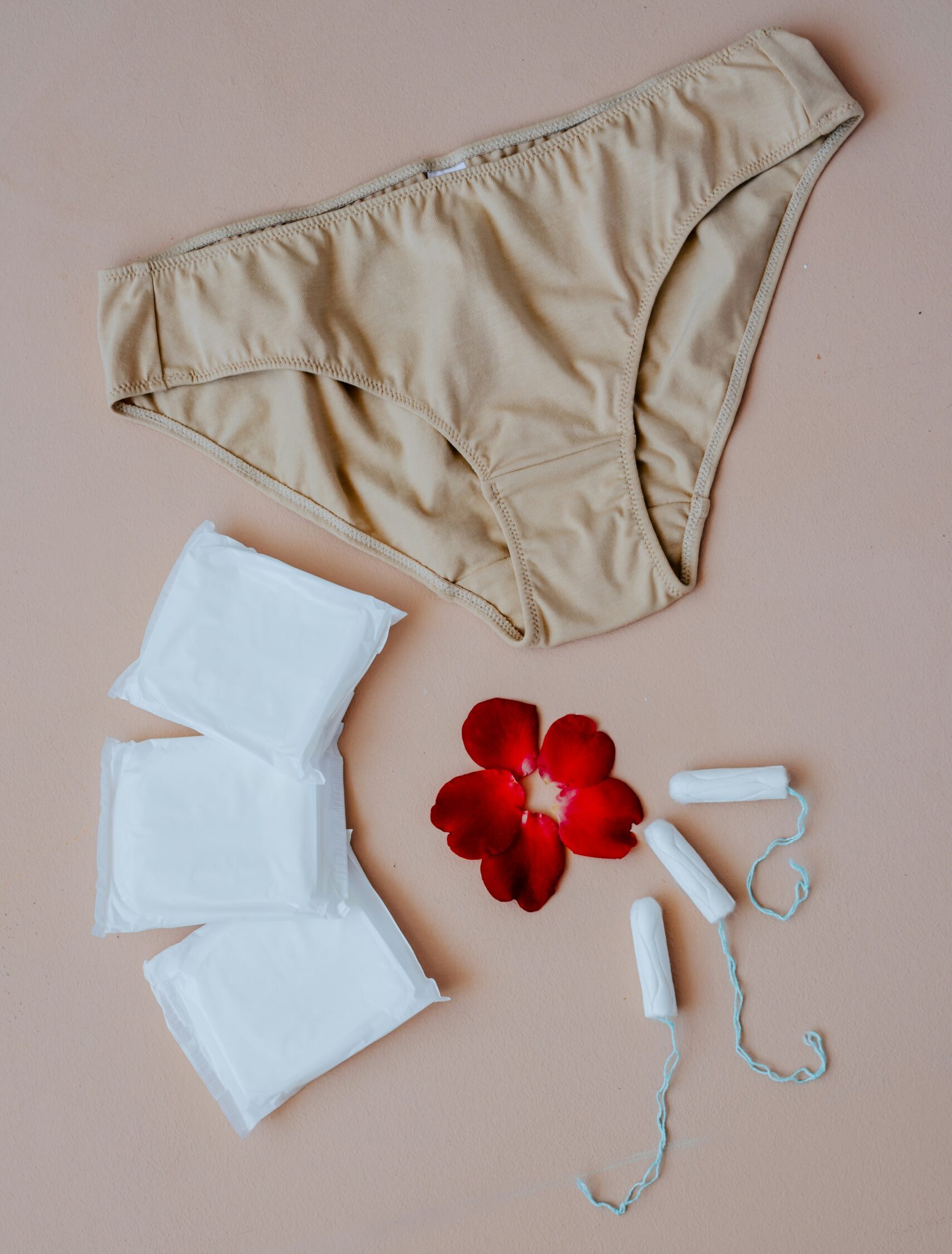It’s normal to lose anywhere between 50 to 100 strands of hair per day, according to the American Academy of Dermatology (AAD); but, most new moms lose a whole lot more in the months following birth—something known as postpartum hair loss.
Losing more hair than you’re used to often brings up a lot of different emotions. Of course, part of your reaction may be related to the cause of your hair loss (alarm if you’re stressed, grief if you’re undergoing medical treatment, and the like). But, postpartum hair loss is par for the course if you’ve just given birth. In fact, some 40-50 percent of new moms experience postpartum hair loss, according to the American Pregnancy Association.
While Natalie Stentz, MD, MSCE, an OB/GYN, points out that the majority of new moms’ hair will go back to roughly the same thickness as it was before pregnancy (surely a relief to those dealing with extreme postpartum shedding!), dealing with the fallout (excuse the pun) of postpartum hair loss is still worthy of complaint.
Luckily, there are a number of things you can do to help manage the situation, according to Dr. Stentz, including eating a healthy balanced diet, continuing to take prenatal vitamins, avoiding using heat styling tools, getting a haircut and prioritizing using volumizing products.
Whether you’ve experienced thinning hair before or your postpartum health journey is your first introduction to it, there are concrete steps that you can take to boost not only your hair health, but also your confidence.
What to look for in postpartum hair loss products
When determining whether a product might be a good choice for you or not, there are a few things to look for. Penny James, of Penny James Trichology Center, said that Tricotain shampoo is something that can make a difference for those experiencing postpartum hair loss. “Tricotain is a complex mixture of powerful antioxidants and free radical scavengers formulated to neutralize and prevent the oxidative stress and destructive action of free radicals that cause hair loss.”
In the meantime, you may want to reach for volumizing products as well, to make sure that you’re making the most of the hair you do have, Stentz noted, and avoid heavy conditioners that could potentially weigh down your hair, making it look thinner.
The Best 8 Products for Postpartum Hair Loss
Nutrafol Postpartum

You’ve likely heard all about Nutrafol via TV commercials or influencers (and probably wondered what the fuss was about). While the brand originally broke into the market with a Women formula, they’ve since expanded quite a bit and introduced a Postpartum formula. This formula was developed in conjunction with OB/GYNs and is breastfeeding-friendly. Not only that, but since you can subscribe and have it shipped right to your door, you won’t have to rely on remembering to pick it up again or re-order once you’re out.
What we love:
- You can subscribe to it, making it easy to develop a habit.
- Marine collagen and free from gluten, dairy, soy, hormones, drugs, and artificial additives
- It looks specifically at stress, nutrient gaps, and hormonal changes—the main causes of postpartum hair loss.
What we would change:
- The price is a bit high at at least $79 a month.
Quick Facts:
- Ingredients: Zinc, marine collagen, vitamins A, C, D, E, a variety of B vitamins, biotin, and more
- Size: 120 capsules
- Ideal for hair types: good for all hair types
Buy now on Amazon; $88
Full Dry Volume & Texture Spray

This texture spray gives you serious volume. It’s not going to help you regrow what you’re losing, but it will help you make the most of the hair you have at the time. Not only that, but it’s heat protective up to 410 degrees Fahrenheit (especially good for those of us experiencing shedding, because heat can make breakage even worse) and absorbs some oil, so you may notice that you can go a little longer before washing again.
What we love:
- A little goes a long way—it lasts a long time.
- It works great on styled and unstyled hair alike.
- Comes in a travel size so you can take it on the go.
What we would change:
- It’s strongly scented, which some people may not like.
Quick Facts:
- Ingredients: Silicone-free, phthalate-free, paraben-free, formaldehyde-free, and more
- Size: 7.5 oz for the regular size
- Ideal for hair types: Fine, flat, or thin hair, but works for all types of hair.
Buy now on Amazon; $30
Mielle Rosemary Mint Scalp & Hair Strengthening Oil

Rosemary oil can help with hair growth and strengthening, so this is a great, low-lift way to help boost your hair health during the postpartum period (or anytime—once my hair stylist asked what I’d done to help regrow an unfortunate tuft of hair at the base of my head and the answer was “rosemary oil”). It can also help with your split ends and scalp health and is made from organic ingredients. We also love that it’s an affordable product, comes in sustainable packaging, and is easily available.
What we love:
- It’s infused with biotin too.
- It’s designed for daily use.
- It’s affordable.
What we would change:
- Some find it drying or irritating.
Quick Facts:
- Ingredients: eucalyptus, rosemary, mint, lavender, tea tree oil, biotin
- Size: 2 fl oz
- Ideal for hair types: For all hair types and textures.
Buy now on Amazon; $9
Ritual Essential for Women Prenatal Multivitamin

If you’ve never tried Ritual’s vitamins, you should know that the brand has somehow made taking your daily vitamins into a luxurious experience. Stentz says that one of the things you can do to combat postpartum hair loss is to continue to take a prenatal vitamin, and we love Ritual’s commitment to transparency and quality, not to mention the lovely citrus and mint essences they add to the bottles of their vitamins (it seriously makes all the difference).
What we love:
- A capsule designed for optimal nutrient absorption
- No sickening nausea after taking your vitamin
- The mint or lemon essence added to each bottle
- Eligible for FSA/HSA reimbursement.
What we’d change:
- The price is a bit high.
Quick Facts:
- Ingredients: folate, choline, omega-3 DHA, iron, vitamin B12, vitamin D3, vitamin K2, magnesium, boron, iodine, biotin, vitamin E
- Size: 60 capsules
- Ideal for hair types: For all.
Buy now on Amazon; $38
L’Oréal Professionnel Pro Longer Hair Thickening Shampoo for Split Ends

Whether you have split ends or not, this shampoo can help boost your hair thickness and volume without weighing it down. When it’s time to wash your thinner hair, start yourself off on the right foot by prioritizing volume. Because this shampoo is made to help repair hair damage, it’s a great accompaniment to other products you may also be using for your postpartum hair loss, not to mention the fact that because it’s made for fine hair, it’s designed to dial up the volume (just what you need if you feel like your strands aren’t looking quite as luscious).
What we love:
- It’s made for fine hair and boosts volume and shine.
- It helps repair hair damage.
- It’s made for many different hair textures.
- It contains amino acids to strengthen your hair.
What we’d change:
- It’s not as readily available as we’d like.
- It’s not great for color-treated hair because it contains SLS.
Quick Facts:
- Ingredients: amino acids
- Size: 500 mL, 16.9 fl oz
- Ideal for hair types: Best for long hair.
Buy now on Amazon; $40
The Jade Massaging Gua Sha Comb

Gentle scalp massage may reduce hair shedding, plus it feels seriously amazing. Since you probably can’t put your toddler to work massaging your scalp all day, a massaging gua sha comb acts as a two-in-one tool, helping with your postpartum hair loss, while also giving you a quick moment of self-care and relaxation during what’s often a stressful time.
What we love:
- It reduces tension and promotes blood circulation.
- The shape of this comb was redesigned to work with more hair types.
- It’s easy to use.
What we’d change:
- It’s most widely available direct-to-consumer.
Quick Facts:
- Ingredients: Jade
- Size: n/a
- Ideal for hair types: Straight, wavy, or lightly curly. Great for all scalp types.
Buy now on Amazon; $30
Keranique Follicle Strengthening Deep Repair Hair Mask

This product may be the exception to the “stay away from heavy products” rule. This thick, rich hair mask is specifically designed to help fortify hair follicles, allowing hair to grow better and appear fuller. Make sure you rinse it out well to keep your hair light and bouncy.
What we love:
- It comes in sustainable packaging.
- It only takes 5 minutes.
- It helps reduce damage and breakage.
- It doesn’t contain any sulfates, dyes, or parabens, but does contain biotin, amino acids, and proteins.
What we would change:
- Some said it weighed their hair down when applied all over their head. If you have fine hair, you might need to experiment with where and when you apply and how well you rinse.
Quick Facts:
- Ingredients: proteins, biotin, vitamins, and amino acids
- Size: 8 fl oz
Buy now on Amazon; $36
Briogeo MegaStrength+ Peptide Density Serum

We love Briogeo for products made for all hair types that can really work. This hair serum is designed to make your hair look thicker and healthier. I’ve had fine, thin hair my whole life and this is a product I’ve introduced to my own hair routine (separately from the postpartum hair loss period). I massage this into my hair at night before washing in the morning and really like the way it works for me.
What we love:
- Quick-absorbing
- No rinse required
- Made for all hair types and textures
What we would change:
- It’s a bit pricey at $41 per bottle.
Quick Facts:
- 95% of users in research studies saw less hair shedding
- Fragrance-free
- Contains copper peptides, biotin, and zinc
Buy now on Amazon; $41.99
One Last Thing: FAQ
How long does postpartum hair loss last?
Postpartum hair loss can start and end at various times—it’s not a hard and fast rule that what one person experiences will be the exact same as what someone else will experience. Additionally, just because you experienced things one way during one pregnancy, that doesn’t mean that you’ll experience everything the same way during (or after) future pregnancies. Pregnancy and postpartum can be a wild time.
When you’re trying to determine when you may experience postpartum hair loss, there is a general frame of reference you can count on. Stentz said that postpartum hair loss usually peaks at 4 months postpartum, but can last for up to 15 months.
How are different hair types and ethnicities impacted?
Hair is a really personal thing. So while you may have friends, coworkers, or that one woman from Pilates telling you how the postpartum hair loss process will go, that doesn’t necessarily mean it’ll impact you in exactly the same way.
You may be wondering if you’ll experience postpartum hair loss differently depending on your hair type or ethnicity. According to James, hormones affect hair loss more than your hair type does.
“Hair is susceptible to hormonal imbalances. When you give birth, estrogen, and progesterone get depleted very fast, which causes the hair to be pushed into the falling-out stage of Telogen,” James explained. “Good news: this horrible hair loss only lasts about a month and is self-correcting. Your hair will grow back.”
How does diet impact postpartum hair loss?
While your diet certainly impacts your overall health, you may be less sure about how it can affect your hair loss, particularly during the postpartum period. Does it even impact postpartum hair loss?
Stentz said that there isn’t much research out there linking diet and postpartum hair loss, also known clinically as telogen effluvium. “Many experts agree that supplementing vitamin D levels may help in women with postpartum hair loss and low Vitamin D levels. Given the prevalence of low vitamin D levels especially during the winter time and in women with more melanin, it would be worthwhile considering testing,” Stentz said. “Additionally, many women experience postpartum hemorrhage or excessive bleeding at the time of delivery. Low iron levels can also be associated with hair loss so supplementing with vitamin C as well as iron can help.”
Though you’ve probably heard that taking biotin supplements can help your hair grow faster and healthfully, Stentz noted that there actually isn’t clear evidence yet that biotin can boost hair growth (though we do know that a deficiency can cause hair loss).
“Some studies touch on folic acid and vitamin B12 for hair loss, but there isn’t enough research to recommend screening or supplements for them,” Stentz added.
Your best bet at supporting your hair growth during the postpartum period through your diet is to aim to eat healthy and well-balanced meals, Stentz explained. Though this can be a challenge during the postpartum period, it’s worth doing what you can to plan ahead or, if possible, consider splurging on some convenience items that can help make this a bit easier.
James also noted that ensuring you’re getting enough protein in your diet can help support hair health.
Should you change your washing or styling routine when you’re going through postpartum hair loss?
It might be tempting to make big changes if you’re dealing with a lot of postpartum hair loss, but that may not be the best way to go. Sticking with your consistent washing routine can be a good idea during this period.
“If you always wash your hair daily, keep to the same schedule. If only once a week, then do the same,” James said. “Try Tricotain Shampoo and Conditioner. The product won awards in the UK for best hair loss shampoo.”
When it comes to styling, you may, in fact, want to switch things up a bit. “Get a haircut, maybe layers to hide the shorter hairs growing in,” James suggested. “Or change the parting where the hair has got thinner.”
What ingredients should you look for?
When you’re shopping for products to help address your postpartum hair loss, James recommends Tricotin, which may help address some of the shedding with which you’re dealing.
Both James and Stentz also recommended continuing to take a prenatal during this period to support your hair health.
Author
-

Lauren Schumaker fell in love with food at a young age. After attending culinary school in Chicago, she moved to Athens, GA to earn her master's in journalism at the University of Georgia. While in Athens, she took over the food-focused Locavore column in Flagpole magazine. She was also an editorial intern at Sauce Magazine in St. Louis, where she continued to freelance. Lauren worked as a lifestyle writer and editor for years, with bylines appearing in places like Romper, INSIDER, Tales of the Cocktail and The Everygirl. When she's not working, you can find her in the kitchen cooking, spending time with her dog, Brody, or working on her endless TBR list.
View all posts




